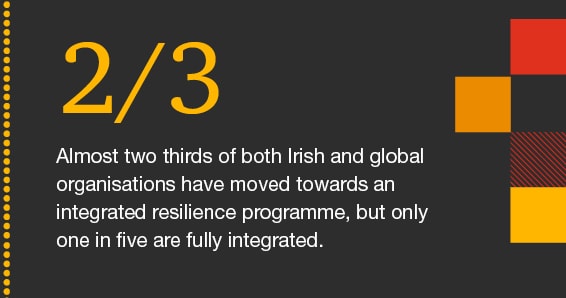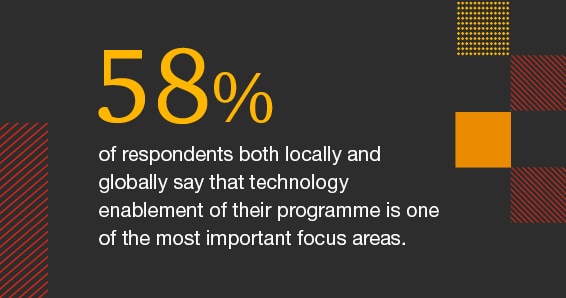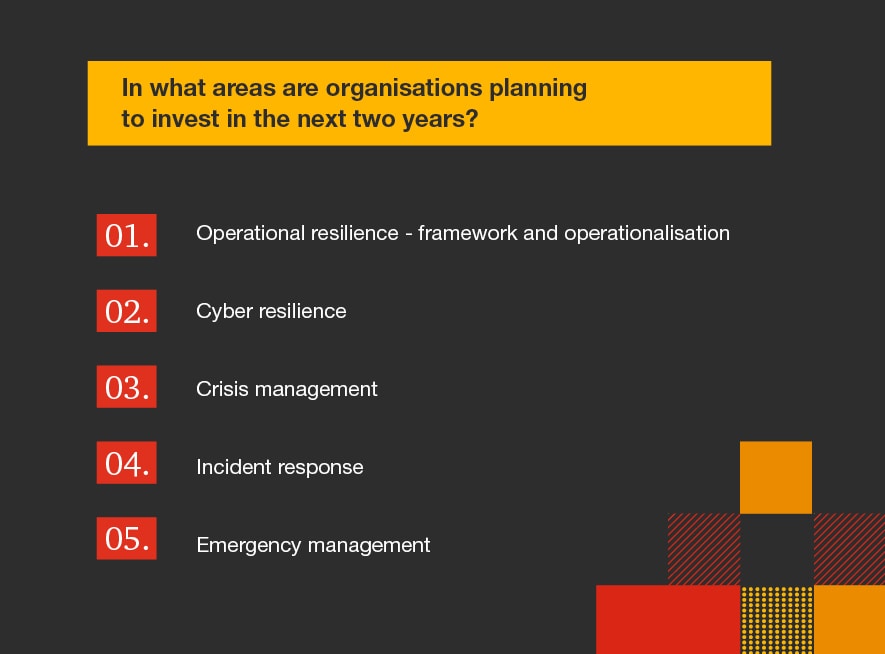
Embrace a strategic approach to resilience to thrive in the era of constant disruption.
As Irish businesses face a rapidly changing world, the challenges of geopolitical upheaval, soaring inflation and economic uncertainties have become ever more prevalent. Moreover, the disruptions from cybercrime, supply chain challenges and climate crises have emerged as daunting and unpredictable challenges.
Irish business leaders must proactively anticipate and respond to disruption in such an environment to survive and thrive.
The key to success is resilience: the ability to navigate crises and the capacity to adapt and succeed in the face of constant disruption. PwC’s Crisis and Resilience Survey 2023 delves into how organisations are directing their resources, efforts and investments toward building resilience to thrive in a state of permacrisis.
The resounding voice of Irish and global business leaders echoes the need for a resilience revolution. It is time for organisations to embrace and invest in resilience to transform their operations in an era of constant disruption.
Three takeaways
1. Integration: An integrated resilience programme is essential

It is no longer sufficient for organisations to be in silos as they address today’s complex and interconnected risks. Both locally and globally, enterprises are moving toward an integrated approach to resilience, centrally governing and aligning multiple resilience capabilities around what matters most to the business and embedding the programme into operations and the corporate culture.
2. Leadership: Thriving in permacrisis requires an executive leader and upskilled teams

A successful resilience strategy and programme needs:
- Executive sponsorship from the C-suite
- A senior leader with clear responsibility for the programme
- A skilled team to drive the programme across the organisation
Consistent with global trends, 33% of Irish respondents said building a team with the right skills is a major challenge in establishing a resilience programme. 57% of Irish organisations cite upskilling future leaders as one of their three most important elements of future-proofing resilience.
3. Programme approach: building operational resilience around what matters most
Organisations must build operational resilience and ensure that enterprise planning and preparation are part of a broader continuous cycle. Irish organisations are investing in teams to deliver on the resilience agenda, with 77% of respondents confirming at least one dedicated resource. As more organisations integrate their resilience programmes, many firms around the world are adopting the core principles of an operational resilience (OpRes) approach, focusing on protecting what matters most and prioritising investment based on what’s critical to their organisation and stakeholders. This allows organisations to manage risks with high reliability and drive efficiency.
Those who have moved to an integrated resilience programme are significantly further ahead in many of the core elements of OpRes: building a robust corporate immune system where an organisation can adapt, flex and move forward stronger.
Technology-powered resilience

Distributed data, systems, processes and operational silos mean organisations struggle to obtain a complete view of their resilience, only identifying gaps when disruption hits. The traditional approach to managing resilience is no longer working; simply checking off compliance with regulations does not deliver resilience. Too many organisations miss opportunities to identify and rectify vulnerabilities before an incident occurs. What are the vulnerabilities you can and can’t live with? It’s time for a new approach.
Business leaders understand the need to underpin resilience strategies with technology that can intelligently aggregate data from across a business to provide an integrated, insight-driven single source of truth and greater agility in times of crisis. Business leaders also want to use technology to create a living resilience programme they can continually test and evolve.
Where are Irish businesses investing in resilience?
Despite market conditions, organisations aren’t reducing their investment in resilience – further testament to business leaders’ recognition that it is critically important. Financial services lead the way in the resilience agenda, partially driven by significant regulatory requirements to be delivered by the end of 2023. Other private and public sectors are also investing heavily in resilience, typically driven by a strategic change agenda.











Menu